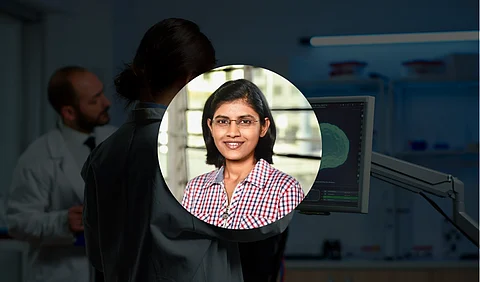At UC Davis’s Neuroprosthetics Lab, she and her team built a brain-to-voice system that turns brain signals into speech in under 25 milliseconds—fast enough to keep pace with natural conversation.
Her work, now published in the journal Nature, also shows what Indian researchers—especially Indian women in science—can achieve with the right support.
How the Technology Works
The system uses 256 tiny electrodes implanted in the part of the brain that controls speech. These pick up signals when the person tries to talk. The signals are decoded in real time into basic speech sounds (called phonemes), along with tone, pitch, and emphasis.
The decoded speech is then converted into audio using a special computer system. This allowed the participant to ask questions, shift tone, and even sing simple melodies.
Earlier BCI devices could only output slow, robotic speech, often one word at a time. This new system offers real-time, expressive voice—something much closer to natural conversation.
A Human Voice Restored
Test listeners were able to understand around 60% of what the participant said using the BCI-generated voice, compared to just 4% from his natural speech.
Dr. David Brandman, the neurosurgeon who implanted the arrays, said the emotional impact of restoring not just speech but a person’s own voice was incredibly powerful.
Dr. Wairagkar, in conversation with Hindustan Times, called the technology “extraordinary,” not just because it works, but because it brings back the human element in conversation.


